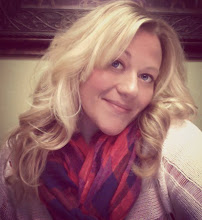
The United Methodist Church was founded by a man named John Wesley. Wesley was a man of great theology and thought. One thing we get from Wesley is known as the Wesleyan Quadrilateral. The four parts that make up this quadrilateral are: Scripture, Tradition, Reason and Experience.
- Scripture: Holy Bible (Old and New Testaments)
- Tradition: The history of the Christian Church
- Reason: Rational Thinking & Sensible Interpretation
- Experience: A Christian's Personal & Communal Journey in Christ
I mean, how do I know what I know? Where did I get my thoughts and beliefs? Some from scripture, yes. Some from tradition both in the church and how I was raised. Some from reason; because I have to be able to wrap my head around major concepts. And, some from experience; I would say a lot from experience - those moments when you know it's a 'God thing'.
As I begin this exploration of my own personal faith and start to critically (not used in a bad term) challenge the concepts I hold to be true, I hope to find a deeper sense of self in the shaking of my foundation. One of my professors said this to the class this week, "if your faith can't stand a little shaking up from time to time, you don't have a very solid foundation to start with." Wow! That just hit me...she's so right. If my faith is solid and on solid ground, then it won't matter how hard the wind blows at me, or the hail hits me, or how much the ground shakes...I can stand any storm.
This is a great revelation as I begin to discern exactly what is my faith. Since going into seminary, so many people have challenged my way of thinking. This hasn't thrown me of course in terms of me not believing, but it has given me cause to looking more critically at why I believe and think the way I do so that I can have solid answers and explanations when confronted with future questioners. I have to be able to be self aware enough that I can identify what thoughts and beliefs come from scripture, what comes from my family and church traditions, what comes from my simple reasoning and of course, what I have derived from my own experiences. Never-the-less...this ALL makes sense. It really makes sense when I look at others who may not see things the same way I do. I can look at them with an eye of discovery and understanding rather than of judgement. I can really see the person for who they are and what they take out of their quadrilateral and then, better see them.
In our small group this week, we talked about the Blind Man and Jesus. Jesus healed this man's eyes from blindness with spit and dirt. It's not the act itself that I'm really thinking of at this moment, rather, its the notion that there are many people we encounter every day who are spiritually blind. People who believe things, right or wrong, simply for no good reason. I have to challenge myself to remember that these people have not yet been given the ability to really see. This doesn't make me better than them. Rather, it helps me to realize and remember that we're all on this journey together and if I walk 30 paces ahead of someone who is blind and I get there first, I'm the worse for it because I should have stayed behind who he/she that is blind and walked with them. The true sin comes out of being given the ability to see and then denying what you see. This is hard for me to swallow because I do this all the time. I see things, I know better and yet I choose to do things as if I've never seen or known. Then I wonder, how does that behavior help those who are spiritually blind, to see?



































1 comment:
thanks for your thoughts on Wesley's Quadrilateral. Your thoughts about the Quad are right on. However, today the Methodist church is using the Quad in a perverted way to place scripture in light of the other areas instead of how the other areas are subject to scripture (as Wesley intended) I especially like the picture at the beginning. Thanks again for your thoughts.
Grace and peace
A Fellow Journier in the Methodist Tradition. I am UMC Pastor in the Virginia Conference.
Post a Comment